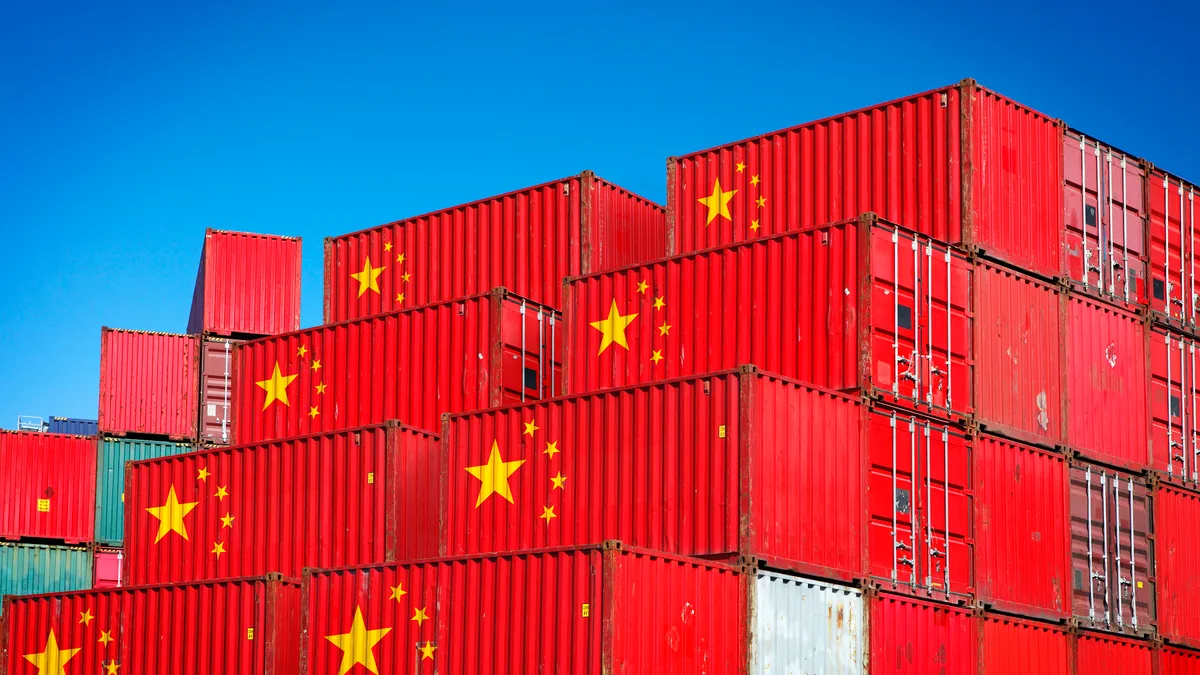Dive Brief:
- The Chinese port of Sanshan stopped accepting scrap metal imports three days before the tightened metal import regulations were set to take effect on July 1.
- The shutdown appears to be due to considerable stockpiles of metal from importers attempting to beat the deadline, Joe Pickard, chief economist and director of commodities at the Institute of Scrap Recycling Industries (ISRI), told Waste Dive.
- There is no indication of when the port will reopen to accept scrap metal under the new restrictions. Other Chinese ports do not appear to be affected.
Dive Insight:
Scrap metal exporters believed China would only restrict mixed metal imports, which can be lower quality due to higher contamination rates, but that it would continue accepting "furnace-ready" material that doesn't have to be hand sorted and processed.
That view changed when the Chinese government announced restrictions on eight category 6 items previously on the "unrestricted" materials list, drastically reducing the number of importing licenses or material volumes it would authorize.
In June, the government listed the reduced material quotas set to begin in the third quarter — 240,796 metric tons of copper, 54,256 metric tons of aluminum and 14,968 metric tons of ferrous scrap. Those numbers — understood by some industry participants to be the entire list — only applied to certain companies in northern China. The list for companies in the South, where much of the metal material flows through, likely will come soon, Pickard said.
Some predicted the regulatory measures would prompt an influx of scrap metal into China as recyclers rushed to beat the deadline (China's aluminum imports in May were up nearly 60% year-over-year). But the complete shutdown of Sanshan's port to scrap metal just days before the deadline took many by surprise.
Copper is expected to be the commodity hit hardest by the new regulations. U.S. exports of copper and copper alloy scrap to China already were down by about 80% this year as a residual effect of other material bans and stricter contamination standards.
Concerns now center around the potential ripple effects these new regulations could have on other scrap metal markets. ISRI, specifically, is monitoring whether metal exporters seeking new markets will cause an influx of material to other Southeast Asian countries.
"We don't want to have a repeat of what happened with plastics when other Southeast Asian countries became overwhelmed and put restrictions on scrap imports," Pickard explained. Vietnam, Malaysia, Thailand and Indonesia all implemented tighter regulations on scrap plastics and/or paper when they received a surge in materials from exporters shut out of Chinese markets.
It's too early to determine how far China will go with metal quotas or the potential market disruptions that could result. Likewise, it's too soon to predict the long-term effects of the port closure. Both factors, however, create market uncertainty, which often leads to commodity price volatility.
That uncertainty is further exacerbated by the Chinese government's stated intention to re-establish quota levels and require importers to reapply each quarter.
The time frame for shipping material to China and having it clear customs takes up to eight weeks — meaning metal markets could be subject to a series of purchasing bursts and lulls in the coming months, depending on how the Chinese government's quotas align with incoming shipments each quarter.
Ultimately, said Pickard, recyclers can count on one thing: "[This] is not the end of the story."















